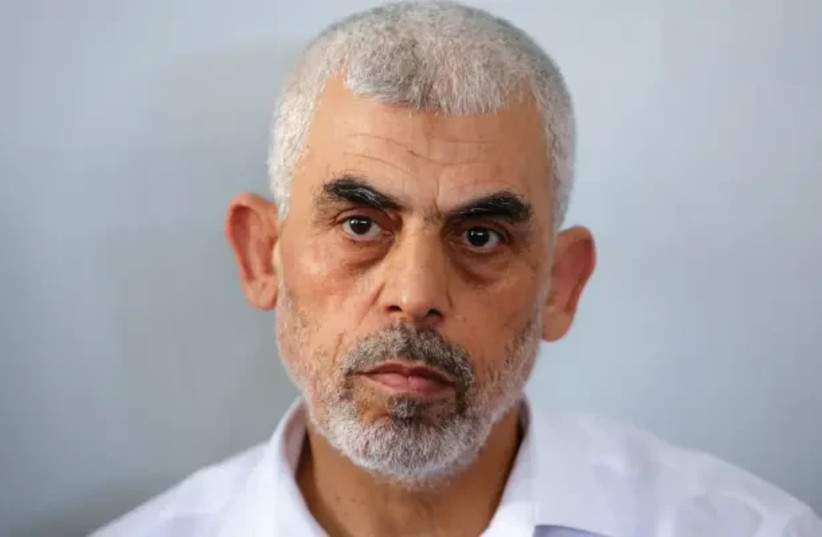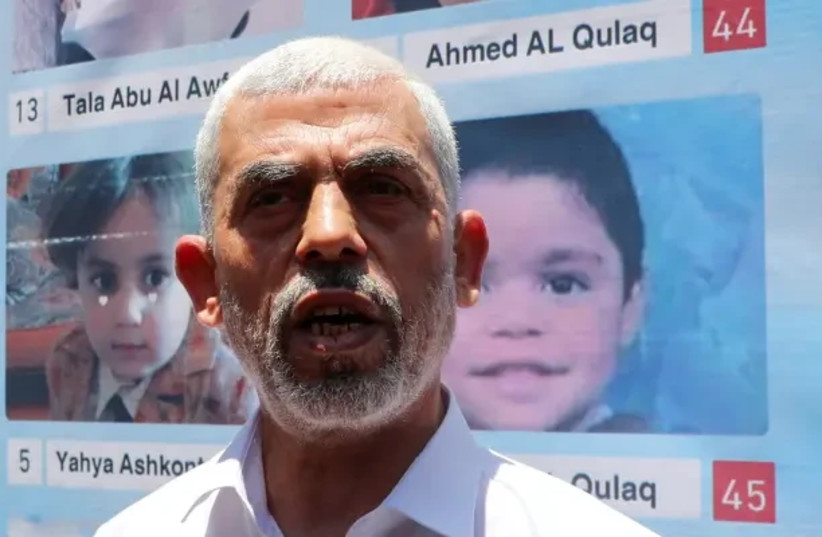I'm upset that Hamas builds narratives, our media happily embraces them, and thus we adapt to superficial binary thinking that does not fit the complex reality. We all already know the false narrative of either a hostage deal or Irsael's entry into Rafah. There is a new narrative that has recently been broadcast on the news: "Hamas has made it clear: they are ready to give up the future government in Gaza."
It is necessary to be precise. Hamas's supreme and almost exclusive interest in this campaign is power in the government and sovereignty. Their victory is staying in control, and perhaps another picture of Sinwar on the armchair in the heart of the ruins illustrates this.
How do we know this is what interests Hamas? It is enough to look at their main demands as part of the negotiations for a second hostage deal, and it is enough to examine his actions throughout the fighting and what they have done in the Gaza Strip since the IDF withdrew most of its forces.
As part of the negotiations, Hamas set demands on which it was not willing to compromise - the return of the residents to the north of the Gaza Strip and the cancellation of a corridor that crosses the Strip - this is mainly to regain its control over the north of the Gaza Strip. At the same time, with the exit of most of the IDF forces fighting in the Gaza Strip, most of the organization's energy is directed toward the treatment of the civilian population.
Additionally, Hamas took over the vast majority of the humanitarian aid coming into the Strip until now, despite Gaza being equipped with regular supplies. Hamas's goal is to preserve its power over the civilian population and to ensure the people know that they must depend on Hamas to distribute food and supplies.

Hamas sent the people of the civil defense to the north of the Gaza Strip a long time ago. These are the operatives of the organization whose role is to take care of the civilian population and their daily lives in times of crisis.
Hamas also started to restore the infrastructure (roads, water pipes, and sewers), clear rubble in the center of the Gaza Strip and Khan Yunis, and purposely take pictures and be photographed. They have opened new markets in Gaza City in place of the previous ones that were destroyed. It has reopened kindergartens in the north and center of the Gaza Strip.
From this, it can be understood that Hamas invests many resources to preserve its sovereignty and the image of its sovereignty in the Gaza Strip. Therefore, it seems that Hamas's new narrative, that it is ready to commit to end the war to give up the future government in the Gaza Strip, is nothing more than eye-catching deception. It is at most a tactical step designed to quickly return to power with waves of sympathy from the Palestinian population.

Hamas's false narratives are among the greatest threats
Therefore, I advise all of us not to buy into the superficial and wrong narratives that Hamas is trying to create. We who experienced October 7 should not fall for the discourse that Hamas is trying to create.
It seems that Israeli military activity against the Hamas battalions in Rafah is expected and the organization prepared for it in advance. Even if Hamas's strength is significantly eroded, it is an activity that will take time, at a difficult price for Israel, and it will probably not be the activity that will cause Hamas to give up or compromise towards a hostage deal.
It appears that any threat to its current and future sovereignty in the Gaza Strip and its ability to govern the population will bring Israel the required achievement. Israel knows how to accomplish this at a relatively low cost in terms of human life and global public opinion, such as the appointment of new civilian committees for the northern Gaza Strip by the IDF while dispossessing the civilian emergency committees of Hamas; or initiating the Gaza Conference with Egypt, Saudi Arabia, and the Emirates to begin the establishment of a joint Arab force and an executive mechanism for temporary control of the Strip. Further, the IDF must initiate the physical isolation of Hamas in Rafah from the south and north.
This set of steps will clearly signal to Hamas that its power over Gaza is diminishing as time passes, and in my estimation will result in heavy pressure on it. It should result in an almost immediate willingness to go in the direction of a new hostage deal.
In the meantime, until the Israeli government comes to its senses and lifts the gauntlet, I implore the reading public not to be tempted by the false narratives that Hamas is trying to echo using the international and Israeli media in order to maximize its profits and its ability to emerge victorious from the war of "Swords of Iron".
Lt. Col. Amit Yegur is the former deputy head of the Palestinian arena in the planning division of the IDF and a former senior officer in the Naval Intelligence.
